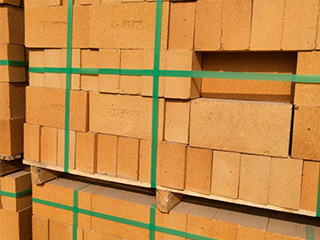Introduction:
Kiln bricks are an essential component of industrial kilns used for high-temperature applications such as firing ceramics, glass, and metal. These bricks are made of refractory materials that can withstand high temperatures and thermal shock. In this guide, we will explore everything you need to know about kiln bricks, including the types of materials used, their properties, and the various applications they are used in.
Types of Kiln Bricks:
Kiln bricks can be made of various materials, including clay, alumina, silica, and magnesium oxide. The most commonly used types of kiln bricks are:
i. Fire clay bricks:
Fire clay bricks are made of clay that has been fired at high temperatures to produce a dense, hard material. These bricks are commonly used in low-temperature kilns and are suitable for applications such as pottery and ceramic firing.
ii. High alumina bricks:
High alumina bricks are made of high-purity alumina and are suitable for use in high-temperature applications. These bricks have excellent thermal shock resistance and are commonly used in industrial kilns for firing ceramics, glass, and metal.
iii. Silica bricks:
Silica bricks are made of silica and are suitable for use in high-temperature applications. These bricks have excellent thermal shock resistance and are commonly used in industrial kilns for firing glass and refractory materials.

Properties of Kiln Bricks:
Kiln bricks are designed to withstand high temperatures and thermal shock. The properties of kiln bricks depend on the type of material used to make them. The main properties of kiln bricks include:
i. Thermal conductivity:
Kiln bricks have low thermal conductivity, which means they can retain heat for a long time. This property is important for maintaining a consistent temperature in the kiln.
ii. Thermal shock resistance:
Kiln bricks have excellent thermal shock resistance, which means they can withstand rapid temperature changes without cracking or breaking.
iii. Compressive strength:
Kiln bricks have high compressive strength, which means they can withstand the weight of the materials being fired in the kiln without collapsing.
Applications of Kiln Bricks:
Kiln bricks are used in a wide range of industrial applications, including:
i. Ceramic firing:
Kiln bricks are commonly used in pottery and ceramic firing kilns. The bricks help to maintain a consistent temperature, allowing the ceramics to be fired at high temperatures without cracking or breaking.
ii. Glass production:
Kiln bricks are used in glass production kilns to maintain a consistent temperature and to prevent the glass from sticking to the kiln surface.
iii. Metal smelting:
Kiln bricks are used in metal smelting kilns to withstand high temperatures and to prevent the metal from sticking to the kiln surface.
Installation and Maintenance of Kiln Bricks:
Kiln bricks are typically installed in a layer pattern, with each layer offset from the previous layer. This helps to distribute the weight of the materials being fired in the kiln evenly across the bricks. The bricks are held together using a refractory mortar.
To maintain the kiln bricks, it's important to regularly inspect them for cracks, wear, and damage. Cracked or damaged bricks should be replaced immediately to prevent further damage to the kiln. It's also important to clean the kiln regularly to prevent buildup of debris and contaminants, which can cause damage to the kiln bricks.
Conclusion:
Kiln bricks are an essential component of industrial kilns used for high-temperature applications such as firing ceramics, glass, and metal. These bricks are made of refractory materials that can withstand high temperatures and thermal shock. The most commonly used types of kiln bricks are fire clay bricks, high alumina bricks, and silica bricks, each with their own unique properties and applications. Kiln bricks have low thermal conductivity, excellent thermal shock resistance, and high compressive strength. They are used in a wide range of industrial applications, including ceramic firing, glass production, and metal smelting.
To maintain kiln bricks, it's important to regularly inspect them for cracks, wear, and damage. Cracked or damaged bricks should be replaced immediately to prevent further damage to the kiln. Additionally, it's important to clean the kiln regularly to prevent buildup of debris and contaminants, which can cause damage to the kiln bricks.
In conclusion, kiln bricks are an essential component of industrial kilns used for high-temperature applications. They are made of refractory materials and have unique properties that make them suitable for different applications. Proper installation and maintenance of kiln bricks are essential to ensure the longevity and efficiency of the kiln.
Contact: Mgr. Han
Phone: 0086-13589497465
Email: 1255953279@qq.com
Add: Industrial Area of Lingzi Town,Zichuan District,Zibo City, Shandong,China